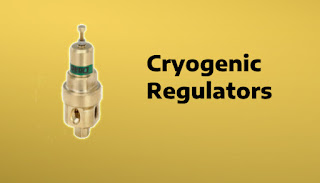Understanding Irrigation Master Valves and Their Wirings
Master valves are essential equipment when considering the installation of an irrigation system. It is an electric valve that completely controls the water flow from the supply point. The valve helps reduce water leakage from a leaky station valve as it supplies pressure to it. As the name suggests, it masters the water supply in case your irrigation main line damages.
A master electric valve is similar to your station valves, but instead of being installed in the downstream from the main line, it is installed at the front of the line in the upstream and is connected to the master pump in the controller.
Let us now understand the master/pump valves wiring:
Usually the timers in the sprinkler systems supply power to a relay so that it could send power to the sprinkler pump. The sprinkler systems use secondary water and are supplied water at very low temperatures.
Master valves are essential equipment when considering the installation of an irrigation system. It is an electric valve that completely controls the water flow from the supply point. The valve helps reduce water leakage from a leaky station valve as it supplies pressure to it. As the name suggests, it masters the water supply in case your irrigation main line damages. A master electric valve is similar to your station valves, but instead of being installed in the downstream from the main line, it is installed at the front of the line in the upstream and is connected to the master pump in the controller.
Let us now understand the master/pump valves wiring:
Usually the timers in the sprinkler systems supply power to a relay so that it could send power to the sprinkler pump. The sprinkler systems use secondary water and are supplied water at very low temperatures.
- The circuit is connected with the wires from the relay – one wire to the common terminal and one to the valve terminal. The relay gets power when the timer activates it.
- On receiving power, the relay closes contacts and power goes to the pump to activate it. The selector on the pump allows using 110 volts, otherwise it is pre-wired for 230 volts.
- At the same time when the controller/timer sends power to the sprinkler pump, it also sends power to the sprinkler master valve and opens it. So, when the pump creates pressure in the system, this opens the sprinkler zone and waits for water.
This is the complete cycle. On completion of this cycle, power to the sprinkler valves is shut off by the timer/controller. At the same time, it shuts off the power that is supplied to the relay and the pump. Although it varies from timer to timer, most of the pump valve circuits are by default on the sprinkler controller/ timer.
Its configuration is technically simple. However, users no longer have to select the zone to which the valve is connected to, as now the option will completely depend on the controller selected when you set up the controller for the first time. Evergreen Midwest is an online store that stocks all types of industrial valves and regulators and has been serving the industry since 1973. To place an order for master valves, please call us at 1800.659.3358 or visit our website at https://www.evergreenmidwest.com/master-valves.html
Source - https://www.evergreenmidwest.com/blog/2017/07/18/understanding-irrigation-master-valves-and-their-wirings/





